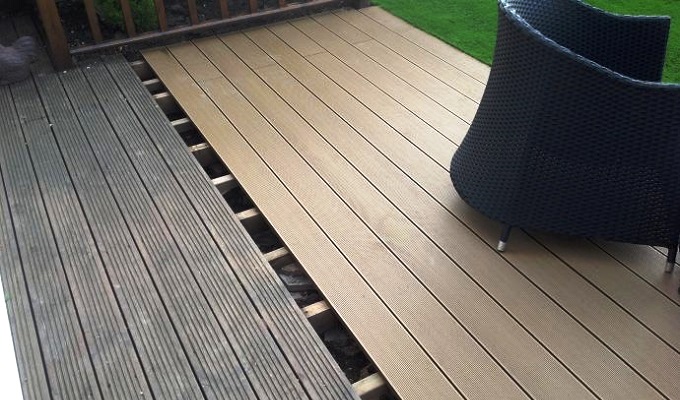One of the questions deck builders are asked, possibly more than any other, is ‘What are the advantages or disadvantages of composite decking versus timber decking?’.
It is a very valid question, and before we answer it, we are going to be upfront and say that we are going to try to be as neutral as we can. There are always going to be differences of opinion with regards to certain products and services, and that is equally true when it comes to composite decking and timber decking.
Some favour the former, and others the latter so we are going to try our best to be as objective as we can as we go through some of the advantages and disadvantages of each of these two types of decking. For specific and more personalised answers, ask your builders which Building Supplies would suit your property best.
Look and Feel
This is one where your choice is going to very much be based on your personal preferences rather than on any kind of technical specification, however, let us try to give you some comparisons.
First, composite decking is going to have in a wider range of colours and finishes, and these are both going to be more consistent than what you see and feel on timber decking. As the decking ages, composite decking is also going to remain more consistent than timber, which will be affected by the elements, for example.
However, timber has an advantage in that you can change its colour and overall look by using staining, which is not possible with composite decking. Even if you do not stain, the more natural look is liked by many.
Strength and Durability
One of the biggest benefits that timber decking has over composite decking is that it is stronger. Unfortunately, composite decking requires more support than timber, due to it not being a normal structural material.
Composite decking can be better supported using joists, but as this requires more materials and additional installation, it can increase the cost.
Ease of Maintenance, and Longevity
Composite decking has the potential to last for up to 30 years, and during that time the amount of time and effort to maintain it is a lot less than required by timber decking. To maintain composite decking all that is normally required is regular cleaning.
On the other hand, timber decking requires considerably more maintenance such as sanding and timber treatment from time to time. With timber decking you might also have to deal with issues such as fungus or timber rot, which you obviously would not see with composite decking
If you do not mind the extra work, then the reward is that timber decking can outlast composite decking, and in theory, could last you a lifetime.
Costs
For many people considering decking it could be that their decision is ultimately influenced by the cost, but it is not just the initial cost that you should think about.
To have timber decking there can be a considerable difference depending on whether the timber decking is made from softwood or hardwood. The cheaper of the two is softwood, and with hardwood, the cost of decking is going to be comparable with composite decking.
One other consideration should be that the long-term cost of maintaining any kind of timber decking is significantly higher than what it is for composite decking.
